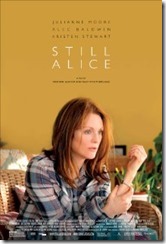 Movies about human afflictions make for juicy acting roles and great returns at the box office; but movies about disease can sometimes do an amazing job of changing the national conversation.
Movies about human afflictions make for juicy acting roles and great returns at the box office; but movies about disease can sometimes do an amazing job of changing the national conversation.
Tom Hanks’ character in the movie “Philadelphia” gave us a window into the social stigma of living with AIDS. Dustin Hoffman’s portrayal of Raymond in “Rain Man” highlighted a time when institutionalization was common for those with autism. Eddie Redmayne’s portrayal of Stephen Hawking in “The Theory of Everything” painted a vivid picture of the physical and emotional struggles of those living with ALS.
In advance media and the press following each movie, there was heightened awareness of the disorders showcased. Whether it was around the water cooler, at the dinner table or in the halls of Congress, dialogue ensued and consciousness was raised.
Those of us that work in the field of dementia care are hoping “Still Alice” (out in general release since Jan. 16) will do the same. The movie is about Alice Howland, a cognitive psychology professor at Harvard, who at age 50 is diagnosed with early-onset Alzheimer’s disease.
For those who might be wondering what the difference is between Alzheimer’s disease and dementia, Alzheimer’s is a form of dementia, but “Alzheimer’s” is often used as shorthand for a host of dementias.
According to the Centers for Disease Control and Prevention, in 2010 Alzheimer’s disease was the sixth leading cause of death among adults in the U.S.
The Alzheimer’s Association reports that last year one in three seniors was estimated to have died with Alzheimer’s or another dementia, regardless of the cause of death.
Alzheimer’s isn’t just an old person’s disease. Like the fictional Alice Howland, there are over 200,000 people under the age of 65 struggling with Alzheimer’s. People as young as 30 have been diagnosed with the disease.
There’s no cure, only drugs that slow the progression of the disease, which affects the individual’s ability to think, talk, read, write and express their feelings.
The disease has struck presidents
(Ronald Reagan), sports stars (Sugar Ray Robinson), actors (Charlton Heston), artists (Norman Rockwell), singers (Glenn Campbell and Malcolm Young of AC/DC) and many, many others.
Most people know very little about Alzheimer’s disease, yet it will most likely affect someone you know in your lifetime.
Learning about dementia isn’t like learning about cancer or heart disease, both of which have a predictable progression and in many cases have medical interventions that can stop the disease. Alzheimer’s has neither of those.
According to the Alzheimer’s Association, the National Institutes of Health spends over $6 billion a year on cancer research, over $4 billion on heart disease research but only $480 million on Alzheimer’s research.
How can we spend so little money on a disease that has no known cure, is the sixth leading cause of death and is present in one of three seniors who die?
As a society, we need to build awareness of the frequency of diagnosis and the impact of Alzheimer’s disease upon entire families.
The movie “Still Alice,” based on the book by Lisa Genova, will hopefully shine some light. Having well-known actors (Julianne Moore, Kristen Stewart and Alec Baldwin) in the cast and a Golden Globe nomination for Moore’s performance should attract plenty of people to the box office.
But what “Still Alice” needs to do is fuel a national conversation. Movies about Alzheimer’s that depict the struggle going on inside the patient’s mind, as well as the painful struggles of their family caregivers, are needed to build awareness, inspire dialogue and gain action.
Participate in this national dialogue by seeing “Still Alice” or reading the book. If you enjoyed the movies “Philadelphia,” “Rain Man” or “The Theory of Everything,” you most likely will find this movie just as thought provoking.
However, many of us are hoping the real drama (i.e., the call to action) unfolds afterward.
Could this movie be the tipping point for a new national dialogue on Alzheimer’s?
I give that idea two thumbs up.
More ...
Tags: Still Alice,Lisa Genova,Alzheimer's Disease,Alzheimer's Disease,Alzheimer's Disease,Alzheimer's Disease,Alzheimer's Disease,Alzheimer's Disease